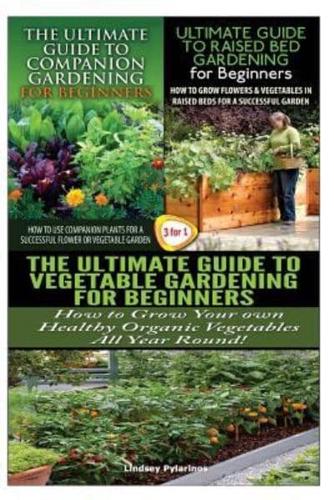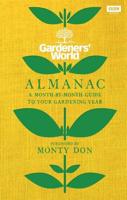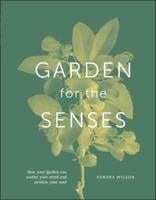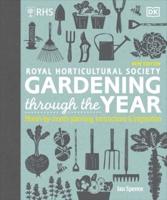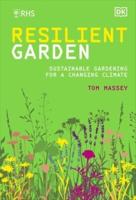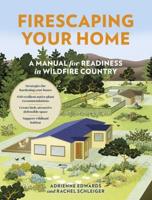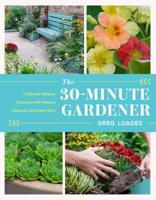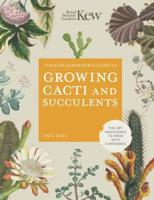Publisher's Synopsis
The Ultimate Guide to Companion Gardening for Beginners: How to Use Companion Plants for a Successful Flower or Vegetable Garden & The Ultimate Guide to Raised Bed Gardening for Beginners: How to Grow Flowers and Vegetables in Raised Beds for a Successful Garden & The Ultimate Guide to Vegetable Gardening for Beginners: How to Grow Your Own Healthy Organic Vegetables All Year Round!Companion Gardening
Companion gardening is just planting certain plants together because they will help each other grow and become healthier. It is said that companion gardening is even better than using fertilizers or artificial ways of letting plants grow because the plants can benefit from each other and it's all a natural process.
Vegetable GardeningWant to concentrate on specific vegetables that are easy to grow and are favorites in most cook books?
The author would like to stress the importance of growing the right type and mix of veggies. This way you get a better crop, and useful veggies that usually go hand in hand with each other.
Don't try to do too much too soon. Don't try to start planting when it's too cold outside. The lowest soil temperature for planting is 40 degrees Fahrenheit. The best soil temperature is around 50 degrees to 60 degrees.
Every successful farmer/gardener has a mentality that considers nature first, before spur of the moment decisions. As an added bonus, planting veggies will turn you into a very observant person.
You know you're a serious farmer/gardener when: you learn to watch the news for a weather forecast; you constantly look at the temperature; you're schedule improves because you need to water your plants at this hour, every day.
Raised Bed GardeningIf you're looking for something space efficient but can produce high yields, raised bed gardening would be the best option for you to try. Besides being efficient when it comes to space, it also solves a number of other issues such as dealing with difficult soil as well as your garden's accessibility.
Raised bed gardens are basically made up of mounded soil that's surrounded by a frame to make sure it doesn't fall apart. They are usually at least 3 to 4 inches above the ground itself and each "bed" is typically separated by a pathway. Plants would cover the entire surface of these beds and the paths would provide the gardener with ample space to work in, making sure that they don't end up stepping on the soil in the process. A raised bed can be 3 to 5 feet across and the length can vary depending on the need. You'll be able to grow a wide variety of crops vegetables on it as well as herbs. Perennial and annual flowers also thrive in this type of gardening along with roses, shrubs and even berry bushes.
